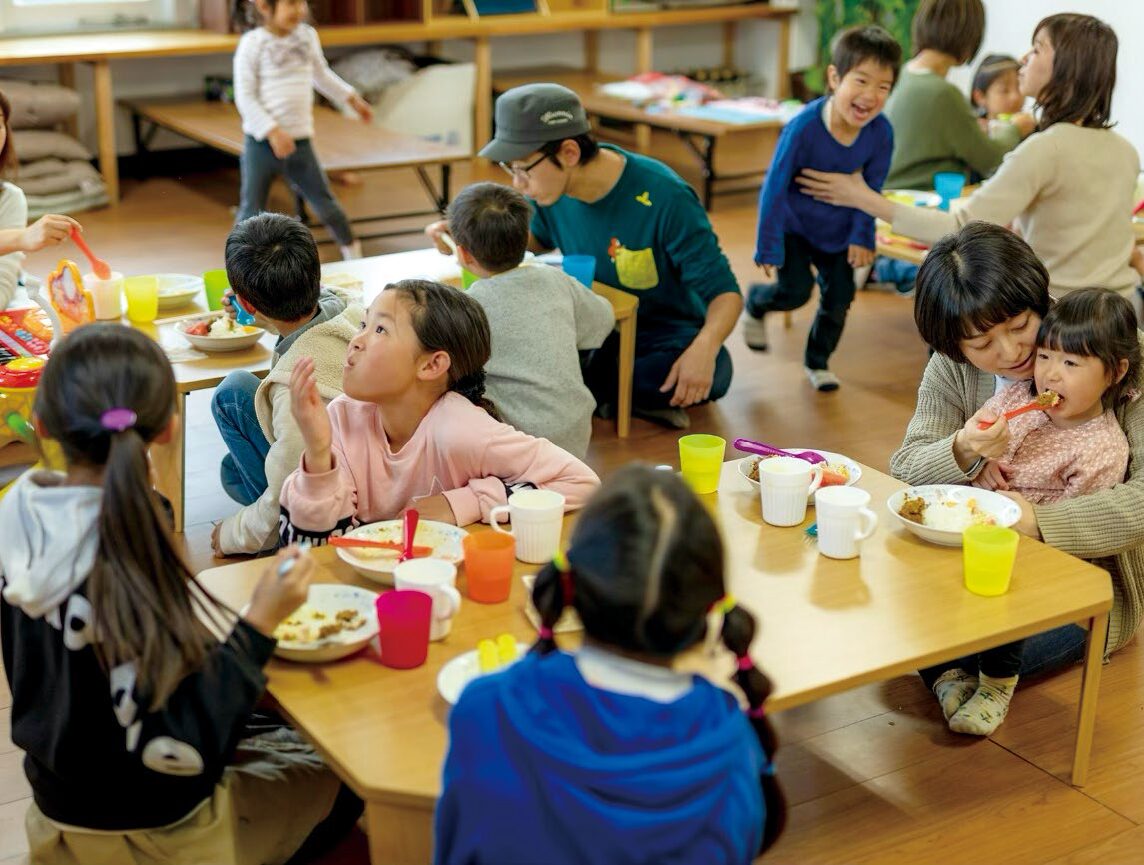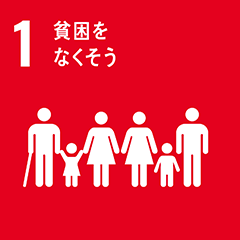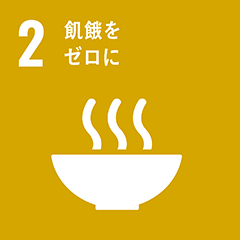Inochi Declaration
Expand the activities of “Children’s Cafeterias” and realize a society in Japan and across the world where “places of belonging” that connect people and nurture every Inochi to unleash its radiant light are present in every community.
By 2050, Japan’s population is projected to fall below 100 million, with the aging rate reaching 40%. In order for every Inochi to unleash its radiant light, people must be able to truly feel happiness. However, no matter how much money one may have, if there is no connection with others, genuine happiness cannot be felt. In 2050 Japan—and likely throughout the world—connections among people will be more vital than ever. One initiative that creates spaces where such human connections can be nurtured is known in Japan as Ibasho-dukuri (creating “places of belonging”). Japan, having faced depopulation and the decline of communities earlier than the rest of the world, has responded by fostering grassroots efforts led by local residents under the principle of community autonomy.
“Children’s Cafeterias” (Kodomo-Shokudo), which began as spaces where children could go alone and receive free or low-cost meals, are an example of places of belonging.
Today, these cafeterias have evolved into open, inclusive, and universal spaces that welcome people of all ages, genders, incomes, and backgrounds. They are places of mixing and mingling where local residents come face-to-face, learn about each other’s diverse circumstances, listen to different perspectives, and interact across divides. Built voluntarily by community members, these spaces have resonated with many and continue to grow. As of 2024, the number of children’s cafeterias has reached 10,867—surpassing the number of public junior high schools.
Musubie, the National Children’s Cafeteria Support Center, sees these cafeterias as key to revitalizing communities that have lost their sense of place. Musubie supports those interested in sustainable regional development and fostering the next generation. It also helps broaden the horizons of individuals in an increasingly fragmented society, aiming to empower each person to become a proactive contributor to their community and society. Musubie facilitates the spread of children’s cafeterias by supporting intermediary organizations (local networks), connecting cafeterias with companies and organizations that wish to help, and conducting surveys and research to communicate the significance and real conditions of these cafeterias. In this sense, Musubie plays the role of a musubime (connector) that links children, children’s cafeterias, and supporters.

Children’s cafeteria whrere anyone can join
Looking at the world, we see a growing number of people who feel left behind or disrespected and who are rejecting the existing systems. Surrounded by those in similar situations or with similar views, people are losing sight of others and growing increasingly distrustful. Simply saying “let’s engage with differing opinions” is not enough to change the situation. What is needed are real-life settings where people naturally and regularly encounter a wide range of others. Children’s Cafeterias are such places, where people connect over shared meals, learn to recognize the dignity of others, and cultivate mutual respect.
Musubie aims to create a society in Japan where everyone can walk to a children’s cafeteria nearby. By 2030, we aim to have a children’s cafeteria in every elementary school district. Looking ahead to 2050, we envision a world in which places of belonging where people gather and support one another will have spread to many countries.
The Inochi Forum, together with organizations such as Musubie, will promote the expansion of children’s cafeterias and help build a world where people are truly connected and every individual’s dignity is deeply respected.
[References]
・Musubie Official Website
https://musubie.org/
・2024 National Survey on the Number of Children’s Cafeterias
https://musubie.org/news/11208/
・Inochi Forum Partnership Program
https://musubie.org/news/10414/
[Action Platform]
Education and Children / Economy, Employment and Poverty/ Urban Development and Disaster Prevention / Diversity and Inclusion / Arts, Culture and Sports
[SDGs]




